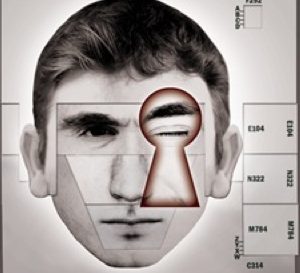Showing @ King’s Theatre, Edinburgh, Thu 31 Mar – Sun 3 Apr @ 19:30
see below for interview with cast member Iain Robertson.
Glasgow has put a lot of effort and money over the years into shaking off it’s “No Mean City” image and anyone who’s spent time in the rejuvenated city centre can see some of the results, but in truth it’s still a place blighted by the spectre of gangs, violence and the status of the brutal criminal as folk hero which Tom McGrath’s 1977 play The Hardman was written to tackle.
It was together with one of the city’s most notorious hardmen Jimmy Boyle that McGrath created this piece. Based around Boyle’s early life and time spent in prison. This was a shocking and powerful eye-opener to its original audience and whilst it’s doubtful the play will have the same impact now its themes are certainly no less relevant.
Alex Fearns famous as the abusive Trevor in Eastenders takes on Boyle’s alter-ego Byrne as the play takes him from crime lord of the Clydeside slums to inmate of the brutal de-humanising prison system and it’s this cyclical nature of the brutality which lies at the heart of McGrath’s play.
The Hardman has been accused in the past of treating Byrne/Boyle as an heroic figure particularly in his resistance to the prison authorities but McGrath always insisted that you couldn’t understand the character without showing the totality of his violent life.
At a time when bookshops and cinemas are awash with tales of gangsters and criminals as heroic figures who loved their mums and never hurt anyone who didn’t deserve it The Hardman and it’s unflinching honesty have never been more important.
Cast member Iain Robertson took a few minutes to answer some questions for The Wee Review:
How would you describe your role(s) in the play?
In the first half I play Bandit Byrne’s right hand man and in the second Act I’m the prison officer who gives him a hard time. I think they purposely double cast those roles to show the similarity between the hardman’s bosom buddies and the guy who’s wielding a baton on him.
You’re several generations removed from the action of the play. What kind of shadow did Boyle cast over your life?
Well I’m from Govan and Jimmy Boyle’s brother was my mum’s plumber. The family legend that Jimmy Boyle’s brother broke my grannies sink when he was replacing the tap. But I’ve been in films like Small Faces so from the age of thirteen I was aware of the gang culture and when I was seventeen I was in The Debt Collector with Billy Connolly, which is a fictionalised story about Boyle’s reformation after leaving prison so for me it was quite easy to enter this because I know the back story.
At the same time I know Boyle’s cousin Frankie Millar very well so I don’t buy into the whole “society made me what I am” because Jimmy Boyle spent all those years in prison whilst Frankie Miller spent those years travelling the world entertaining people. When Boyle was eleven he was breaking into shops whereas Frankie was sitting in his house writing a song called ‘I Can’t Change’ which was covered by Ray Charles, so you can’t blame society for decisions you made yourself.
How relevant do you think it is today?
Frighteningly relevant, particularly in the aspect of the money-lending. In the current climate with this wonderful Conservative government we have I think we’re going to see a rise moneylenders and people like Jimmy Boyle. What’s also interesting to me is how far is the gap between the current banking system and people like Boyle?
With the films of people like Guy Ritchie and others there’s been a surge in the Gangster as hero portrayal how do you think this play differs?
I think the films I’ve been involved in have explored these myths as well. I’d like to see a surge in Scottish theatre, TV and film that didn’t portray us as junkies or put upon poor working class souls with no hope like Ken Loach films. I’d like to see the likes of Sea of Souls, which I was in with people who are intellectual appearing. I don’t think it’s been a growth industry over the last few years, if you look at Jimmy Cagney or John Wayne movies the myth of the hardman is universal.
I do think there’s a particularly Scottish connection to it, sometimes I hear myself speaking tough in a bar and I think “what are you doing Iain – you’d run a mile if there was a hint of violence coming your way.”
